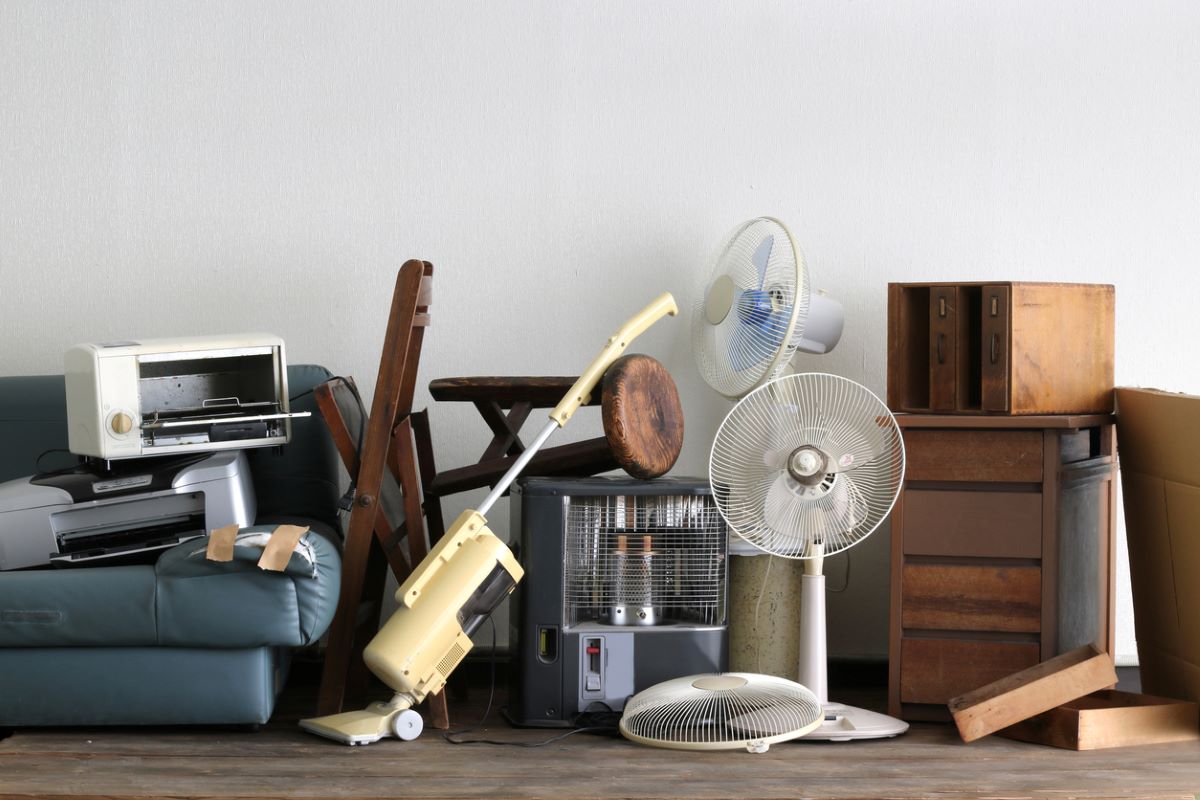We may earn revenue from the products available on this page and participate in affiliate programs. Learn More ›
Whether you’re spring cleaning, renovating, or moving, that big empty rental dumpster in the driveway might seem like the perfect place for all of the junk. After all, trash is trash, right? Not exactly.
There are quite a few things that have no business being in a typical dumpster. Here are 13 items you cannot put in a dumpster, along with some reasons why.
1. Car Batteries and Other Non-Alkaline Batteries
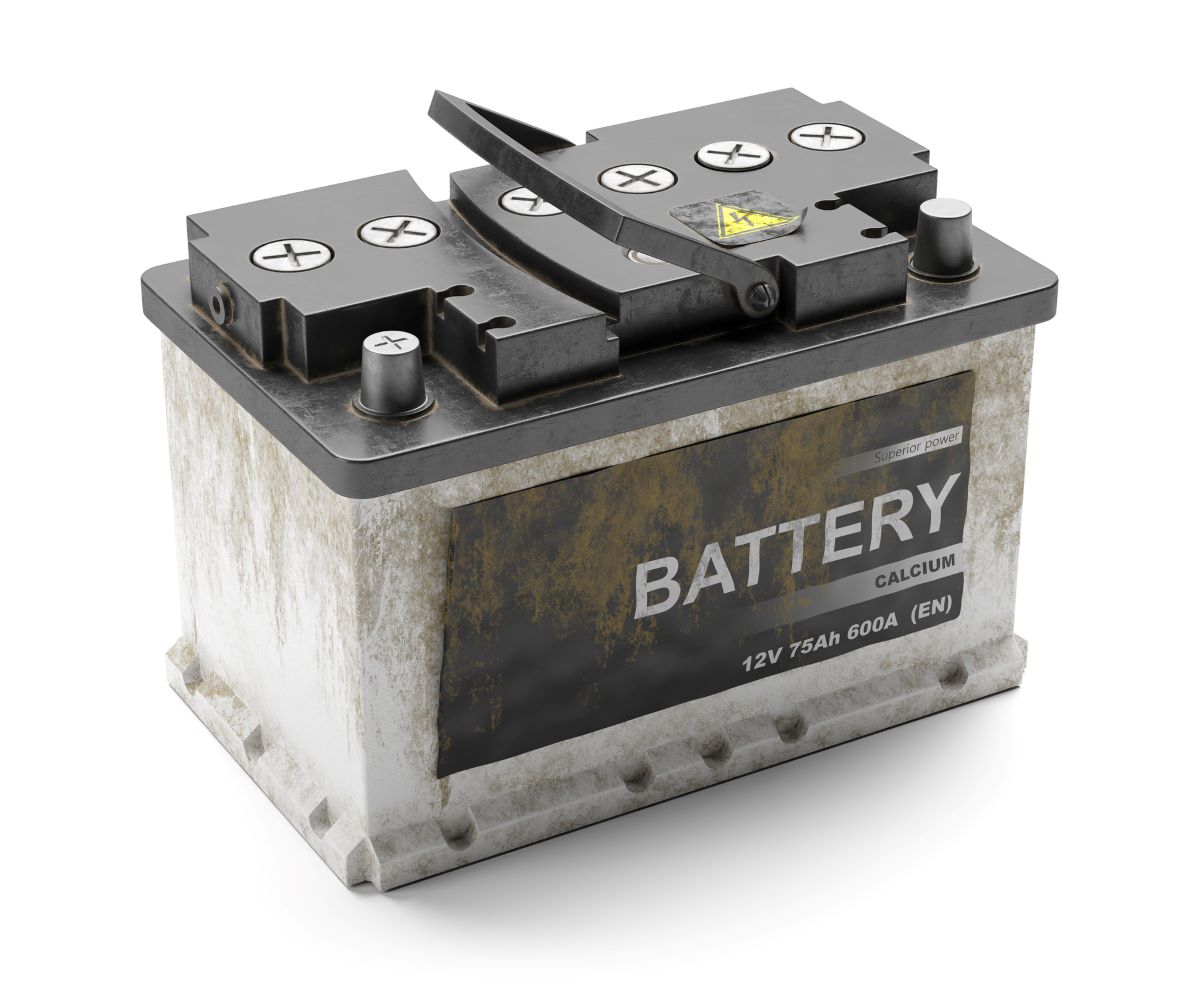
Alkaline batteries are safe to toss in the trash, but non-alkaline batteries are not. This includes car batteries, computer and electronic batteries, lead-acid batteries, rechargeable batteries (like the lithium-ion battery in a cell phone), and silver oxide batteries. These types of batteries are environmentally harmful and cannot be put in a dumpster, as their eventual destination will be a landfill. Fortunately, there are proper ways to dispose of batteries of all types.
2. Grandma’s Couch or Your Old Roommate’s Mattress
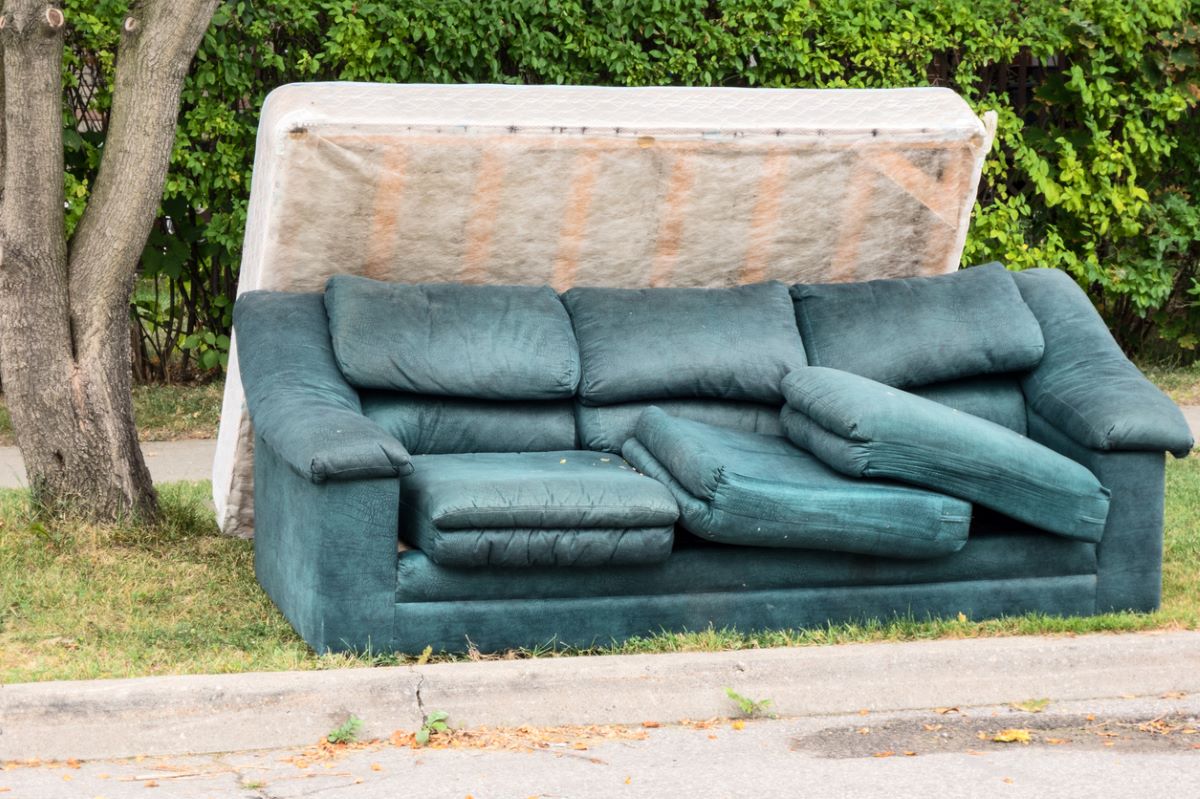
Those lucky enough to inherit their grandmother’s old sofa, or unlucky to be stuck with a mattress from their old college roommate, can’t throw them in the dumpster. Both of these items contain recyclable materials, and they need to be broken down before being discarded. Consider calling a local furniture removal service, and be aware that there is often a fee associated with disposing of these items.
RELATED: 13 Items You Should Never Put in a Dumpster When Cleaning Out Your Home
3. Spare Tires
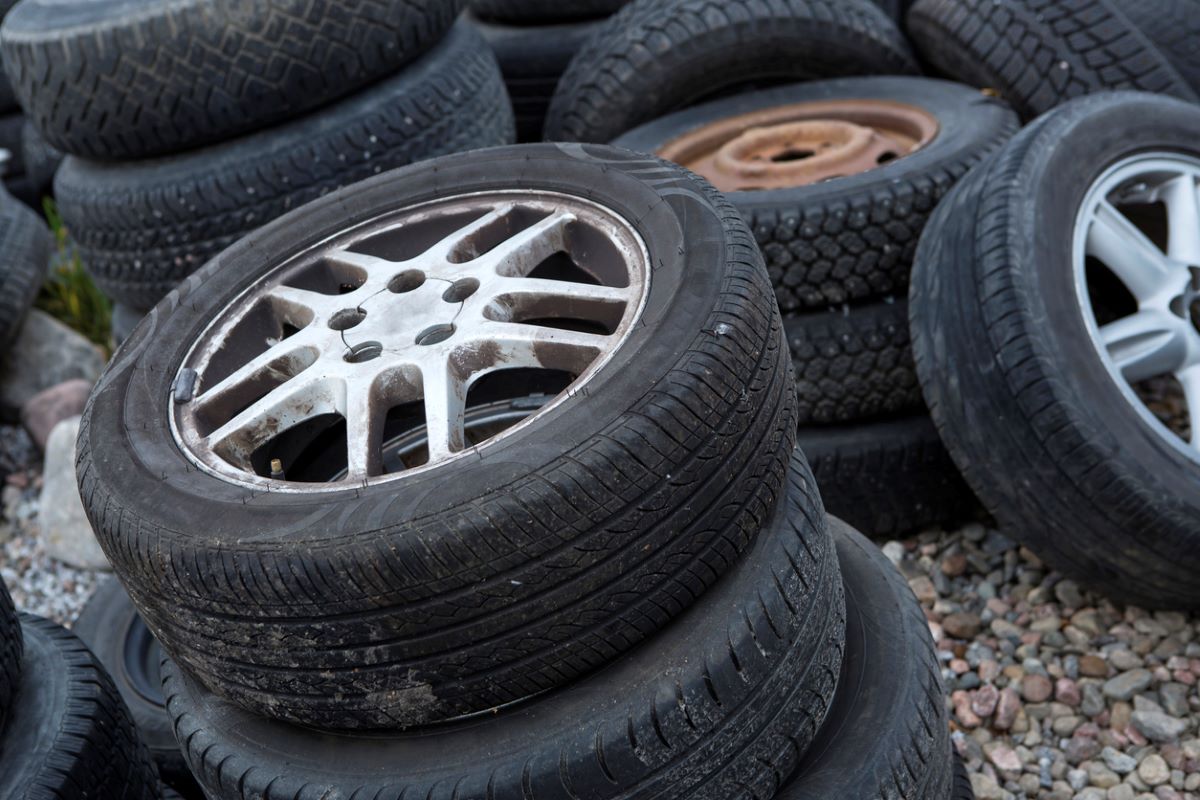
Here’s a fun fact: The space where the wheel typically sits inside of a tire can capture methane gas while the tire is in a landfill. Methane gas will then build and lift the tire to the surface, even if it’s buried low in the landfill. The tire can then damage the protective barrier that separates the environment from the landfill, causing serious environmental damage.
To avoid disposing of tires in an illegal manner, one option is to coordinate with a dumpster company representative and inquire about what to do with them. Other tire disposal methods include taking them to recycling centers, handing them over to participating tire shops, and having them hauled away by a junk removal service.
4. Old Cans of Paint
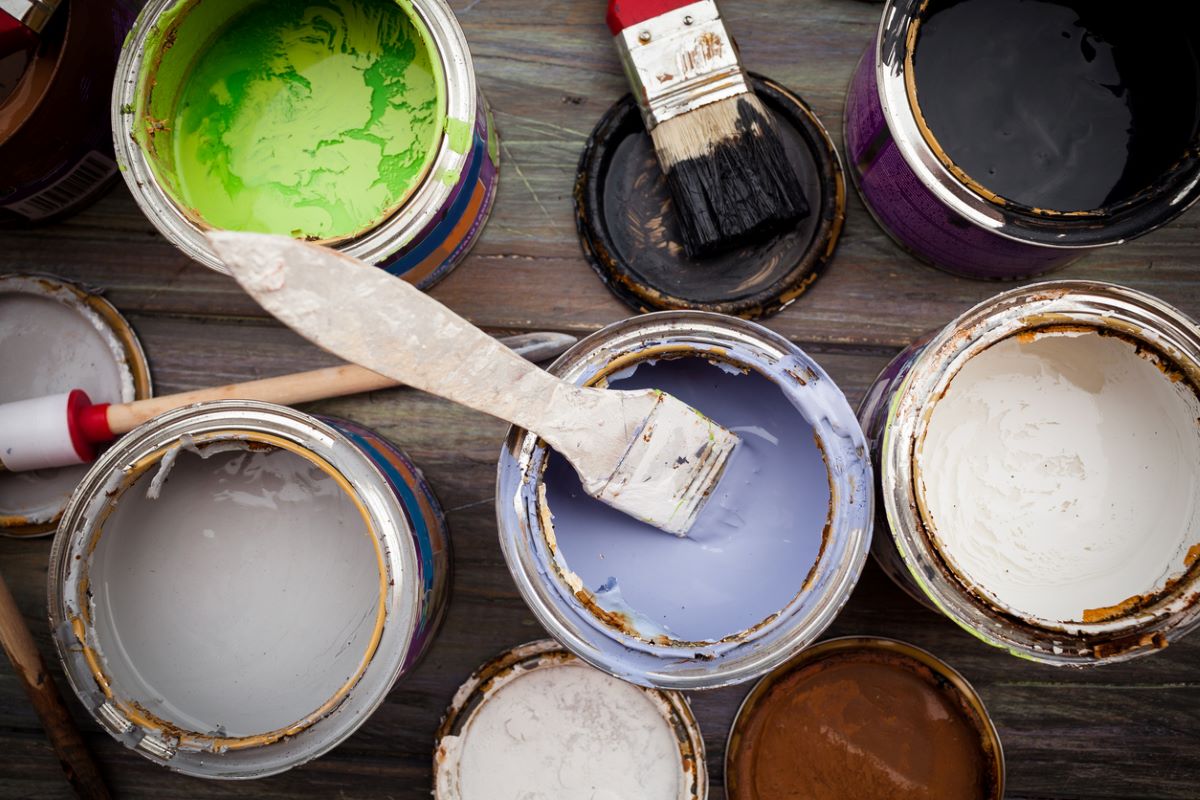
Old cans of wet or dry oil-based paint shouldn’t go into a dumpster. They can leak and allow chemicals within the paint to leach into the ground. However, disposing of latex-based paints this way is okay once they’ve hardened. You can allow the paint to harden by leaving the lid off, but adding a paint hardener like cat litter to the can will speed up the process.
5. Appliances and Electronics
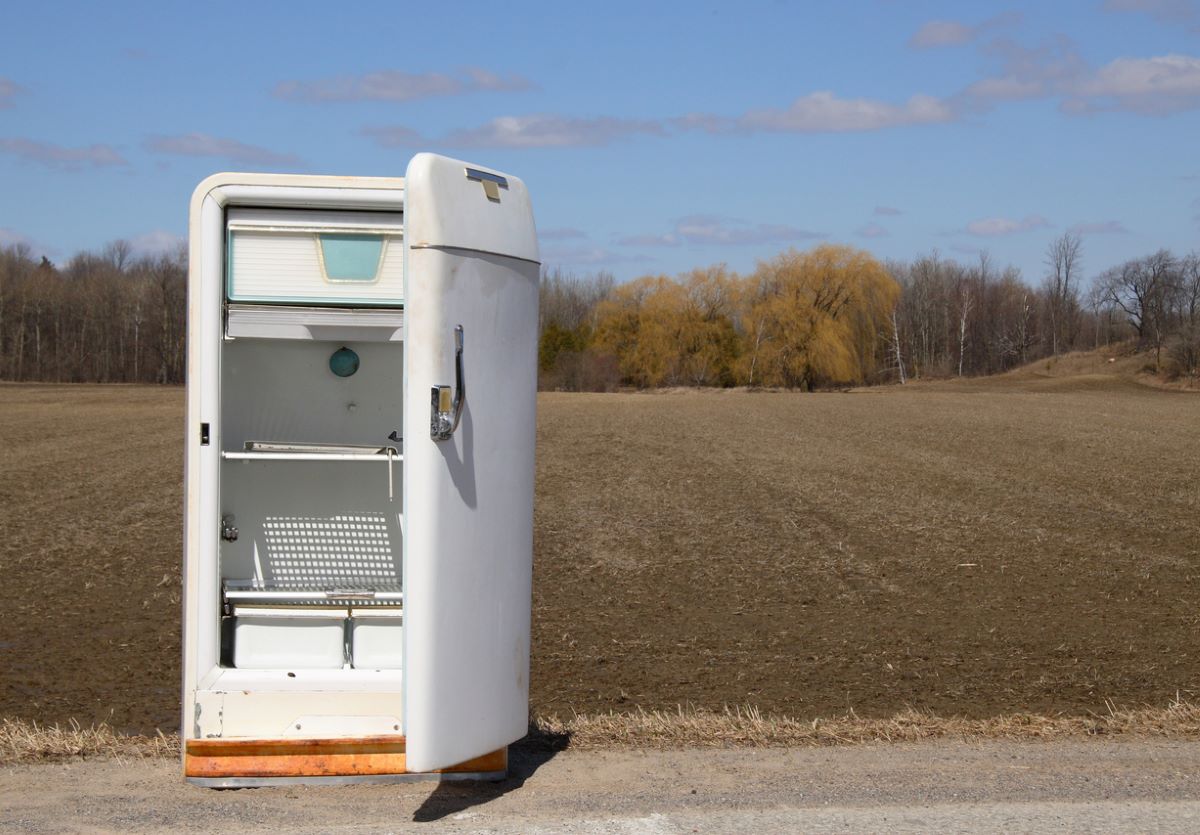
In many cases, appliances and electronics like microwaves, air conditioners, TVs, computers, and refrigerators are not dumpster-safe. They often contain materials that are ecologically harmful, or they might contain recyclable parts.
Instead of throwing these items into a dumpster, schedule an appliance pick-up. Also, some transfer stations accept appliances for a fee on certain days, so call ahead for a local schedule.
RELATED: How to Dispose of Broken Glass and Ceramic Safely
6. Gas Cans, Motor Oil, and Propane Tanks
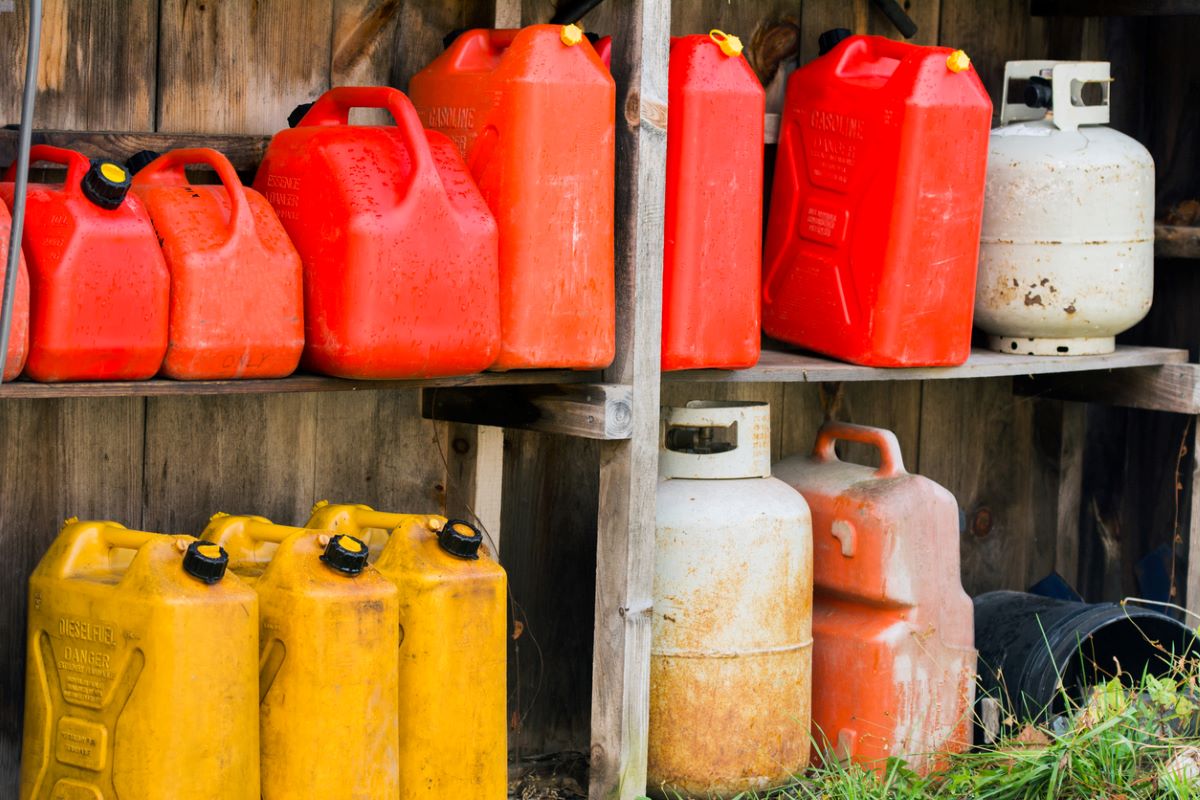
Don’t throw that jug full of motor oil in a dumpster, please. The same goes for old gas cans and rusty propane tanks. The simple fact is that these materials are extremely flammable and unsafe in any landfill. Also, any liquid remaining inside the cans or tanks may leak and seep into soil or groundwater. The best way to get rid of these materials is to call your local hazardous materials authority and ask them what to do.
7. Animal Remains and Medical Waste
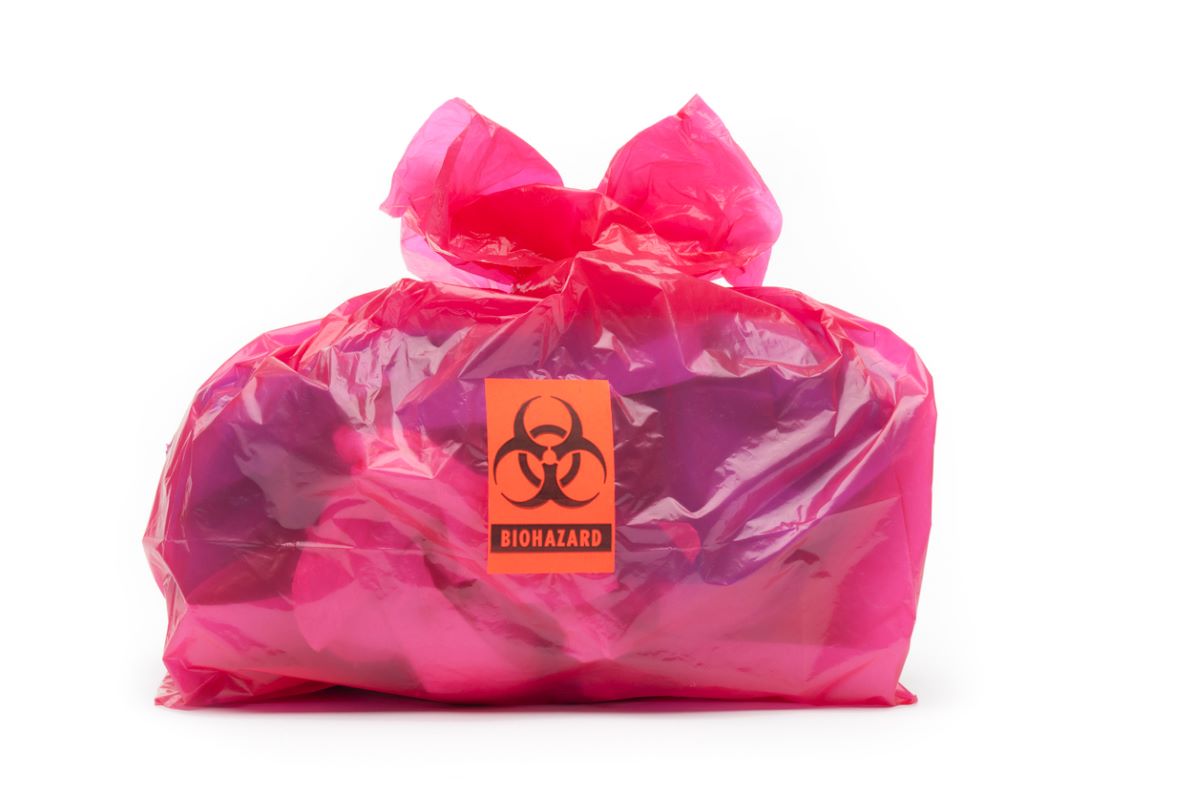
This might seem unlikely in your home, but it’s not uncommon for some homeowners to discover a dead animal in their garage or attic. While it may seem harmless to throw out the long-dead remains, some companies consider carcasses as infectious waste that requires specific disposal procedures.
The same applies to medical supplies, such as dialysis waste, hospital bags, blood-stained fabric, prescription medications, and needles and sharps. Follow EPA medical waste guidelines or your local health agency’s instructions for proper disposal methods.
8. Asbestos
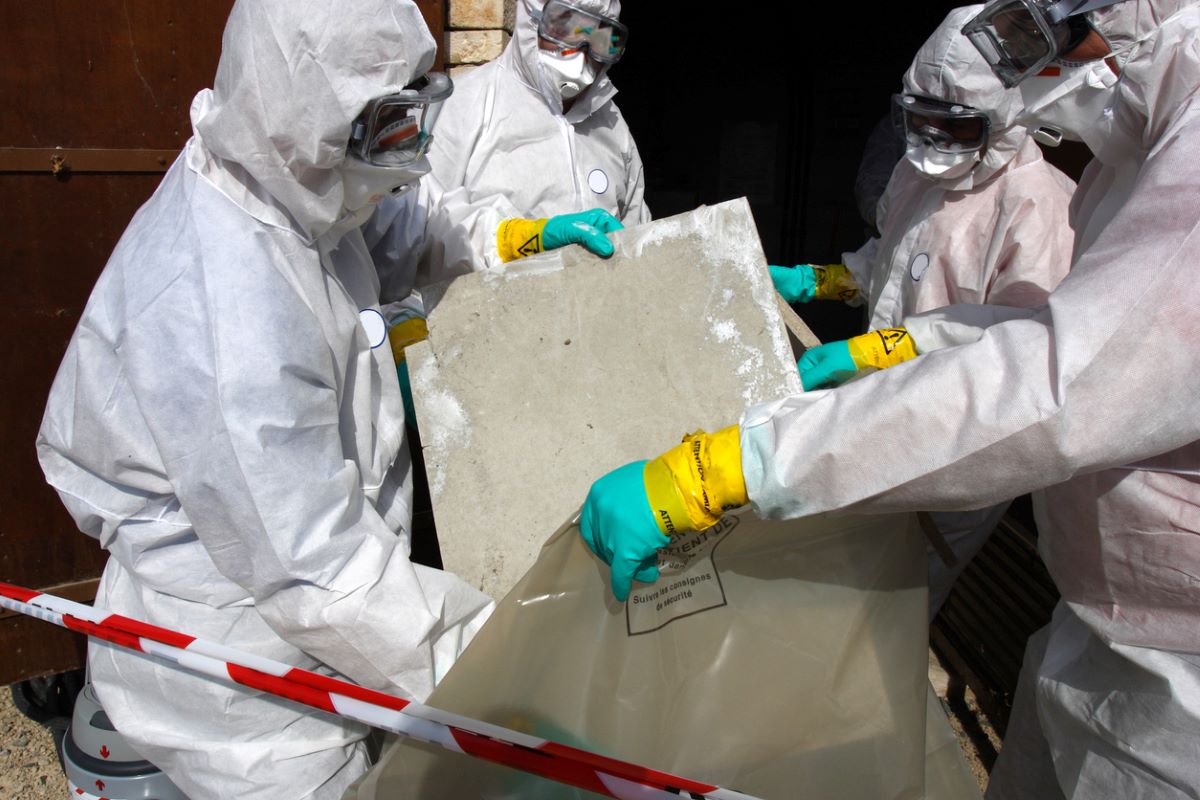
At this point, most everyone knows not to dispose of a carcinogenic material like asbestos in a dumpster, garbage can, or other waste bin. However, it’s still difficult to identify asbestos in all of the forms it may take. Certain flooring tiles, insulation, shingles, siding materials, and even electrical fixtures and wiring can contain asbestos.
In cases where asbestos is present in your home, it’s important to pay for professional asbestos removal.
RELATED: How to Properly Dispose of a Fire Extinguisher
9. Railroad Ties
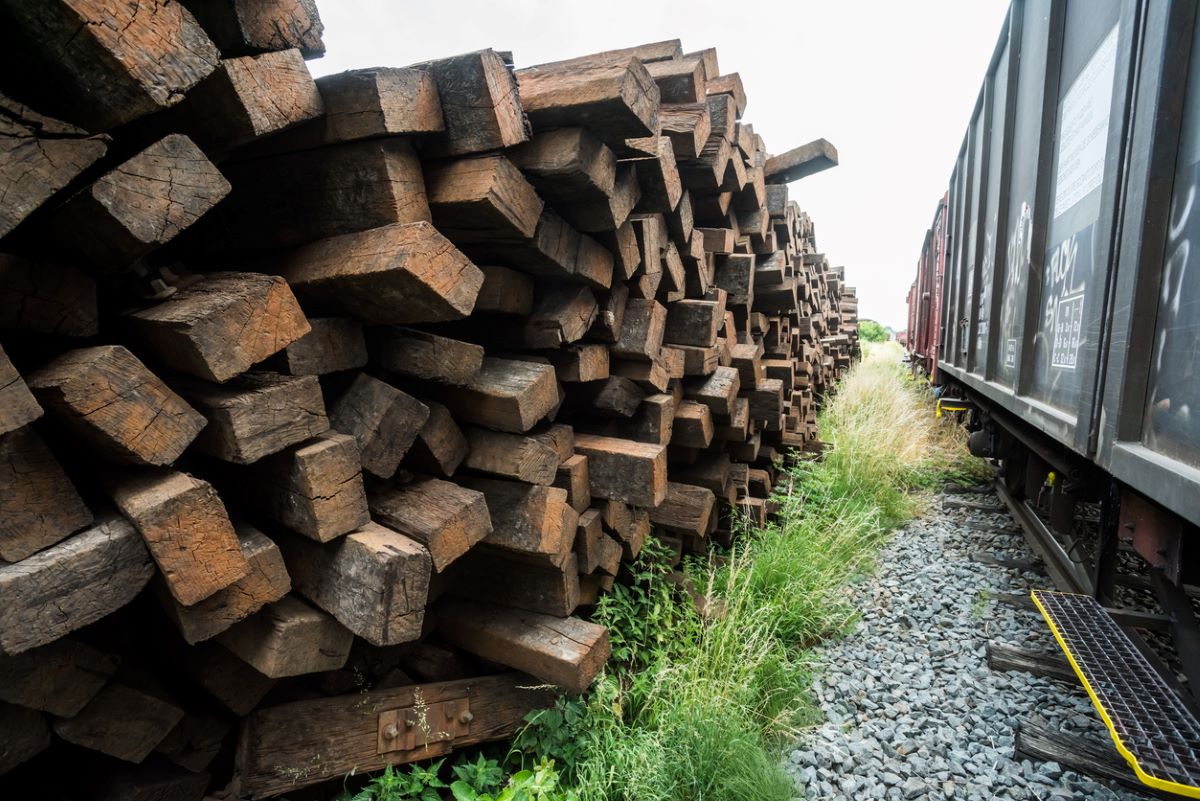
Don’t be a caboose and throw railroad ties in your dumpster. These chunks of lumber are abundant in towns and cities along railways, and they last a very long time. The reason? They’re soaked and treated with substances like creosote, and this makes them unfriendly to your local environment. Some landfills may accept railroad ties—just be sure to get some help hauling them away because they usually can’t go directly into the dumpster.
10. Your Old Cell Phone
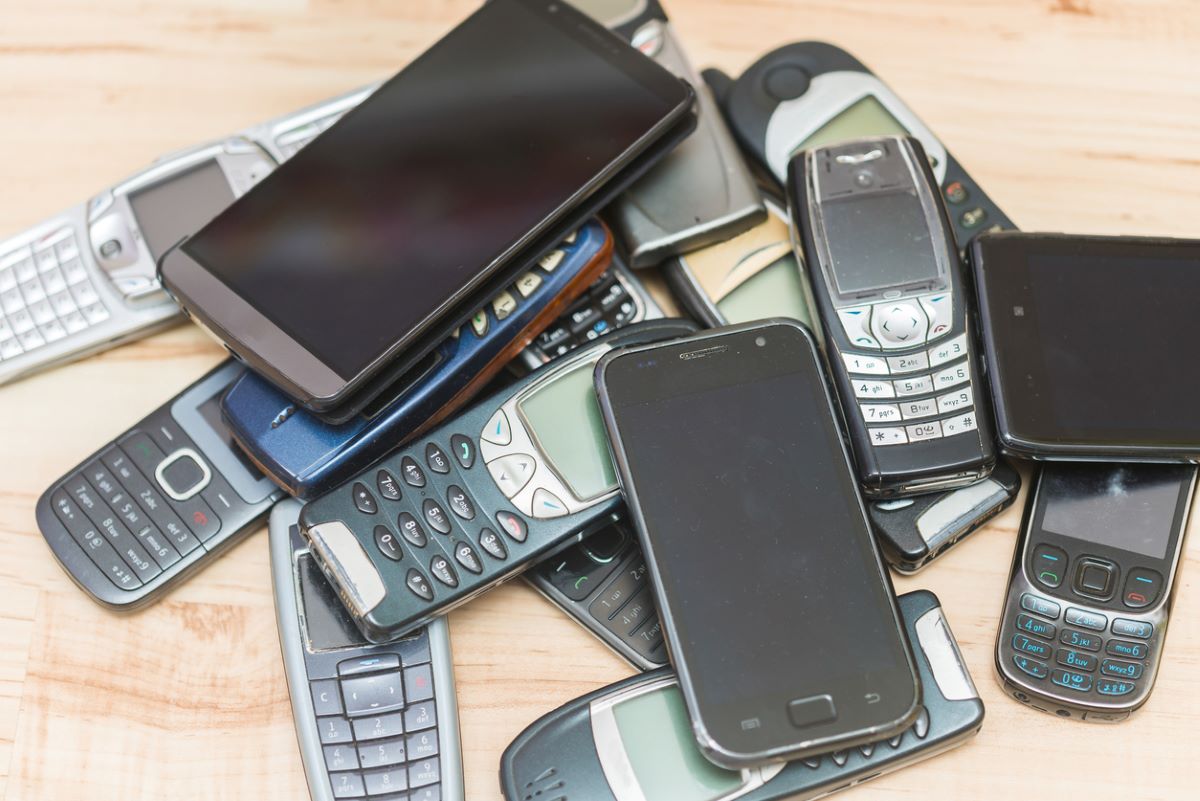
While larger electronics are already covered above, smaller electronic devices deserve their own category. Not only do smartphones and tablets contain high-demand items like microchips, but they also contain minerals that require mining from the earth’s surface. These include copper, tellurium, lithium, cobalt, manganese, and tungsten.
Recycling is by far the more eco-friendly option for electronics disposal, so don’t chuck your old phone in a dumpster regardless of how broken or obsolete it might be.
11. Dirty Dirt
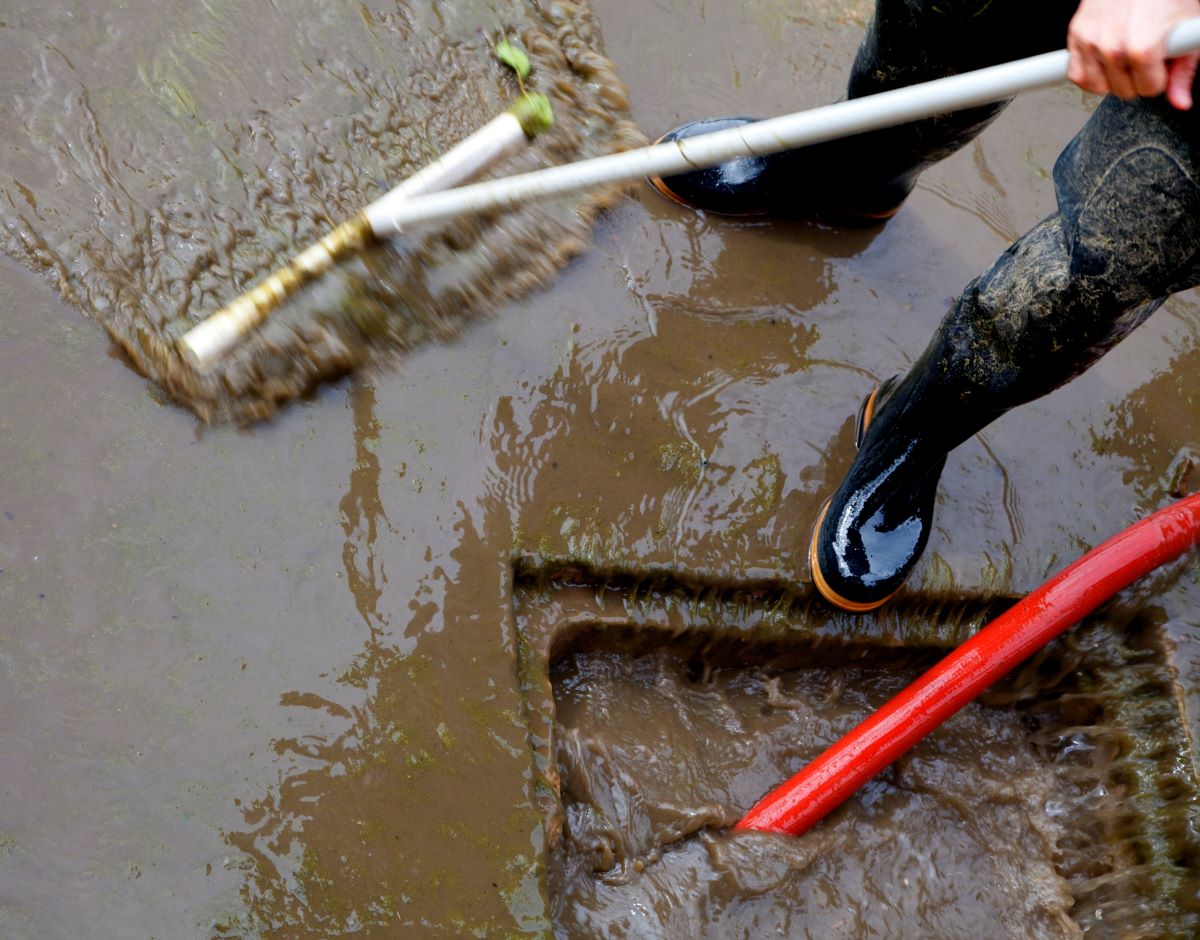
Contaminated dirt is a no-no for dumpster disposal. This can be dirt that accumulated in the basement during a flood or soil from some dirt-floor garages or barns, depending on their uses in years prior.
Soil containing oil, grease, gasoline, and other hazardous waste needs to be taken to a dirt disposal facility for proper disposal. There, the chemicals will be separated from the soil before destroying or recycling the dirt, whereas those chemicals would wind up in a landfill otherwise.
12. Some Large Items
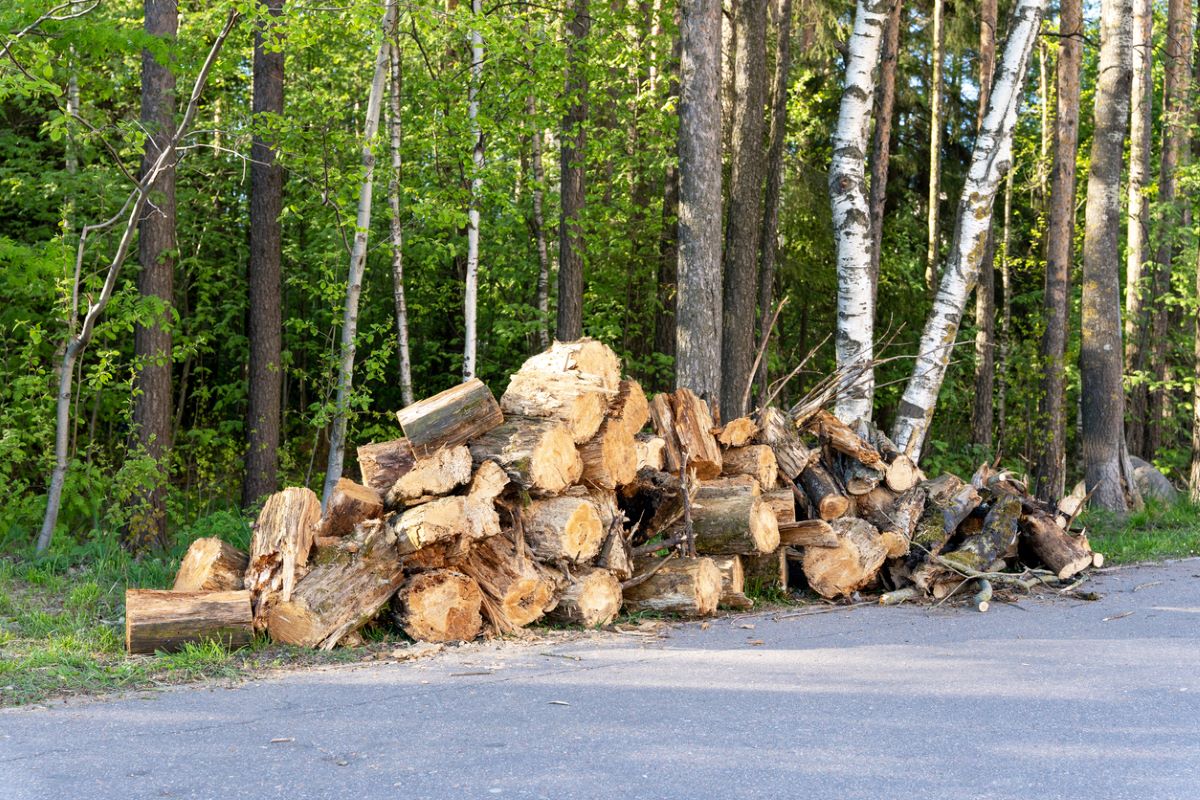
This is a gray area, but items that are too large and can’t be broken down into smaller pieces, such as large objects like boulders, concrete slabs, and tree trunks, might not be allowed in a dumpster. This is true even if the item is not inherently environmentally hazardous.
The reason for this is landfill space can be in short supply, so large objects can take up too much valuable landfill real estate. Call your dumpster company for clarity on what they’ll accept.
13. Power Tools
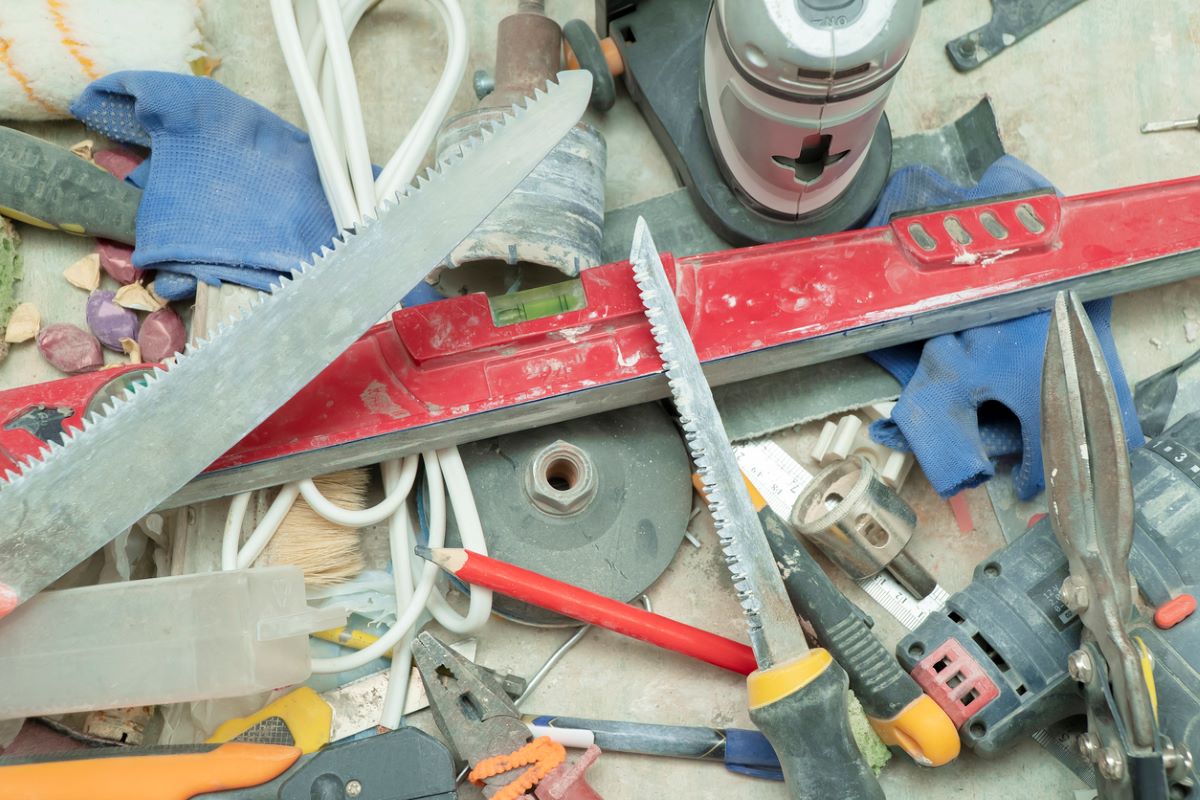
That drill that burned up or the reciprocating saw that refuses to reciprocate shouldn’t be dumpster-bound. Like electronics, these tools contain chips and valuable materials that could be reused by the manufacturer to build more tools or recycled by a retailer.
Instead of disposing of old tools and batteries in the dumpster, take them to a local home improvement store. Most have recycling bins that accept tools.

